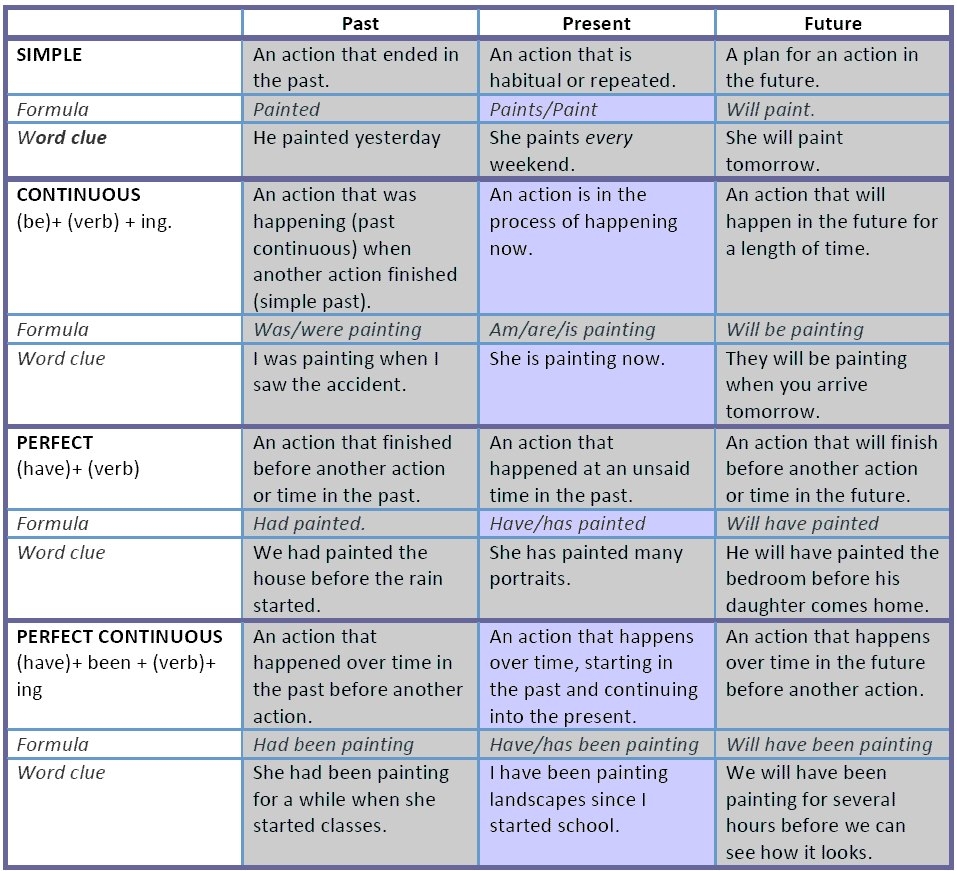English grammar tenses play a crucial role in conveying the time of an action or event. By understanding and correctly using different tenses, you can express yourself more clearly and effectively in both spoken and written English.
There are several tenses in English grammar, each serving a specific purpose and indicating different time frames. Whether you are describing something that happened in the past, is happening in the present, or will happen in the future, knowing how to use tenses correctly is essential for effective communication.
English Grammar Tenses
Present Tense: The present tense is used to describe actions that are currently happening or are generally true. For example, “She goes to the gym every day” indicates a habitual action in the present.
Past Tense: The past tense is used to talk about actions that have already happened. For example, “He finished his homework yesterday” indicates that the homework was completed in the past.
Future Tense: The future tense is used to discuss actions that will happen at a later time. For example, “They will travel to Paris next week” indicates a future action of traveling to Paris.
Perfect Tenses: The perfect tenses indicate actions that are completed or have a relationship with another action. For example, “She has finished her work” uses the present perfect tense to show that the action of finishing work is completed.
Continuous Tenses: The continuous tenses indicate actions that are ongoing or in progress. For example, “They are watching a movie” uses the present continuous tense to show an action currently happening.
Mastering English grammar tenses can be challenging, but with practice and understanding, you can improve your language skills and communicate more effectively. By paying attention to the time frame of actions and events, you can use tenses correctly to convey your message clearly and accurately.
In conclusion, English grammar tenses are essential for expressing time frames and conveying information accurately in English. By learning and practicing the different tenses, you can enhance your language skills and communicate more effectively in both spoken and written English.
